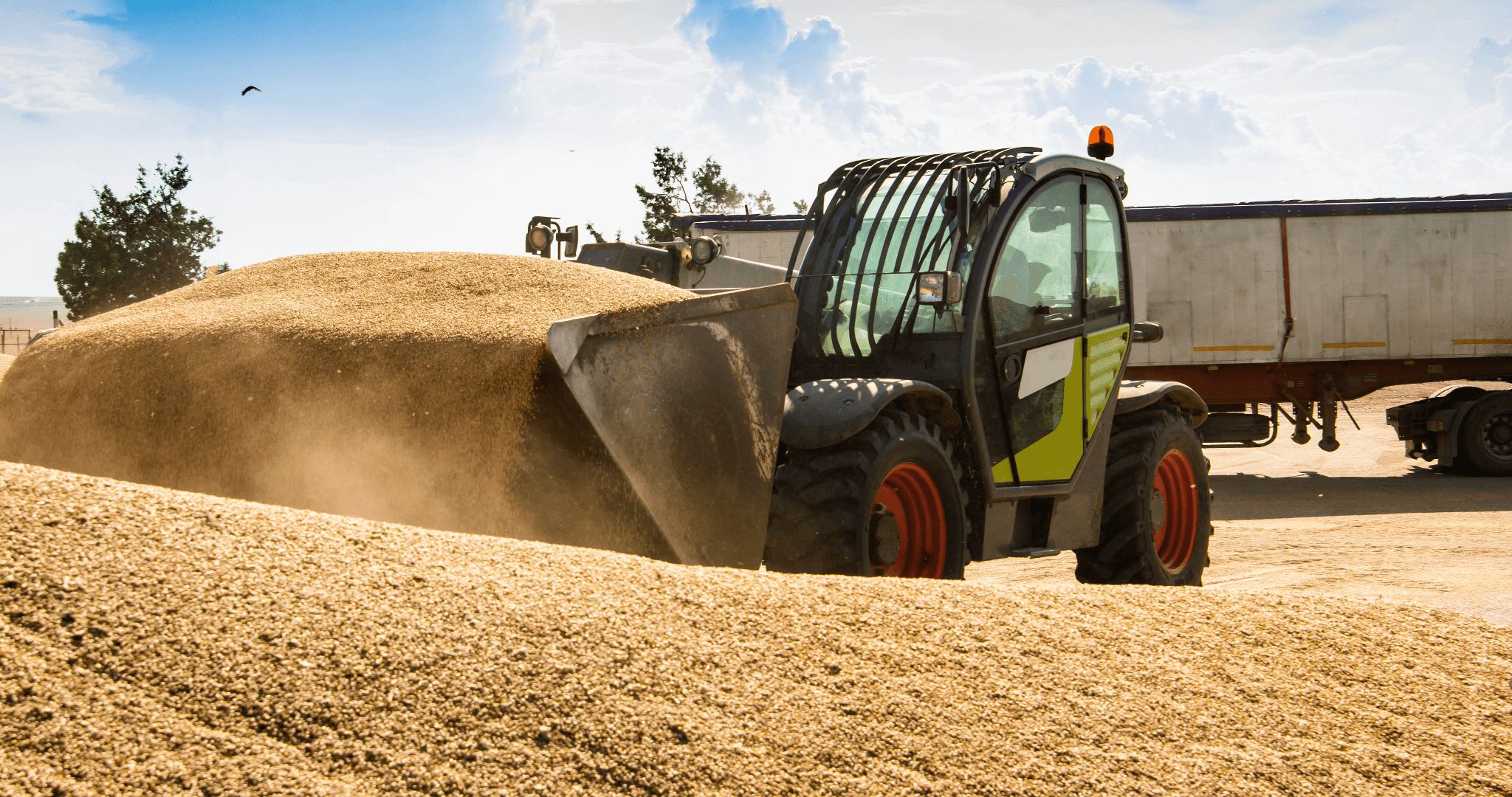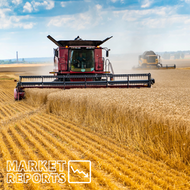Global Wheat Market in 2024: Challenges and Dynamics
Posted by Emily on 14th Dec 2023 Reading Time:
Ukraine's Wheat Production Decline
In 2024, Ukraine is set to see its lowest wheat production in 12 years, as reported by Argus Media. The 20.2 million metric tons projection is a significant drop from the 22.2 million harvested in the previous year and well below the five-year average of 25.9 million tons. This decrease, resulting from reduced planting areas due to ongoing conflict, is the lowest since 2012. However, the average wheat yield is expected to be higher than the five-year average due to improved growing conditions.

Global Wheat Production and Market Trends
Wheat futures experienced a decline, marking the first loss in nine sessions, amidst a U.S. Department of Agriculture (USDA) report that raised global wheat production estimates to 783.01 million metric tons for the 2023-24 marketing year. Despite this increase, consumption is projected to exceed production, with China's increasing imports bolstering wheat prices. Notably, Chicago's most active March wheat futures fell by 1.6%, ending a significant streak of gains.
UK Wheat Market and European Trends
The U.K. and Europe are witnessing a potential rise in wheat prices due to poor crop plantings and increased demand from China. U.K. feed wheat prices are nearing £180 per ton, with future rallies likely as wet weather continues to impact plantings. James Bolesworth from CRM AgriCommodities noted a decline in the winter wheat area in France and lower plantings in Germany and Poland. Rising Russian wheat prices and slowing export volumes also provide some price support in Europe.
Argentina's Grain Tax Increase
Argentina's government under President Javier Milei is planning to increase export taxes on some grains to 15%, excluding soy. This policy is part of the country's strategy to address its economic crisis, with grains being a key export driver. Despite a peso devaluation and spending cuts, the government aims to eliminate all export duties eventually.

European Wheat Crop Challenges
Due to excessive moisture, Europe's winter wheat crop has had a difficult start, particularly in France, the largest producer. Analyst Annachiara Saguatti from Arete highlights the possibility of a shift to spring and summer crops. The European Commission and the USDA have differing forecasts for E.U. wheat exports, with the European Commission predicting a decrease and the USDA an increase.
Russia's Durum Wheat Export Ban
Russia has temporarily banned durum wheat exports until May 31, 2024, to stabilise domestic prices and ensure food security. The ban exempts certain regions and humanitarian aid shipments, reflecting a global trend of protective measures in agricultural trade.
AHDB's UK Wheat and Barley Stocks Report
The AHDB reports a decrease in U.K. wheat availability, driven by a 10% drop in production. Domestic wheat consumption is expected to increase, particularly for bioethanol and starch production. The balance of supply and demand for the 2023/2024 season shows a tighter market, with a surplus available for export or free stock.

Lebanon's Wheat Purchase from Ukraine
Lebanon has reportedly purchased approximately 30,000 metric tons of wheat from Ukraine, financed by the World Bank. This purchase reflects the ongoing global dynamics in wheat trade and the critical role of international assistance in food security.
India's Measures to Control Wheat Stock Limits
To combat food inflation, India has reduced the wheat stock limits for traders and millers. This move, ahead of the general elections, indicates the government's approach to managing domestic food prices and supply.
Market Speculation and China's US Wheat Buying
China's recent purchase of U.S. wheat has influenced market dynamics, causing a notable increase in wheat futures. This development, alongside Russia and Ukraine's conflict, is shaping the global wheat market's future.
Australian Farmer Confidence Amid Drought Concerns
Despite recent rainfall, Australian farmers' confidence remains low due to drought fears. The country's agricultural production value is expected to decrease, highlighting the impact of climate change on global agriculture.

India's Agricultural Commodities Control
India's tightening control over agricultural commodities, including sugar and onions, reflects its focus on domestic food security and market stability ahead of elections. These measures have global implications, affecting prices and availability.
In summary, the global wheat market 2024 is navigating a complex landscape influenced by geopolitical unrest, climate challenges, and shifting policy decisions. Ukraine's significant production decline, alongside USDA's forecast of an overall increase in global wheat production, highlights the market's volatility. Regional dynamics, such as planting disruptions in Europe, Argentina's revised export taxes, and Russia's export ban, further complicate the global supply chain. Additionally, India's regulatory measures in anticipation of elections and Australia's drought concerns underscore the intricate balance between national interests and global market stability. As these diverse factors converge, they emphasise the need for vigilant monitoring and strategic planning in the wheat market, making the role of international cooperation more crucial than ever. We welcome your thoughts and insights on these evolving dynamics in the wheat sector.

